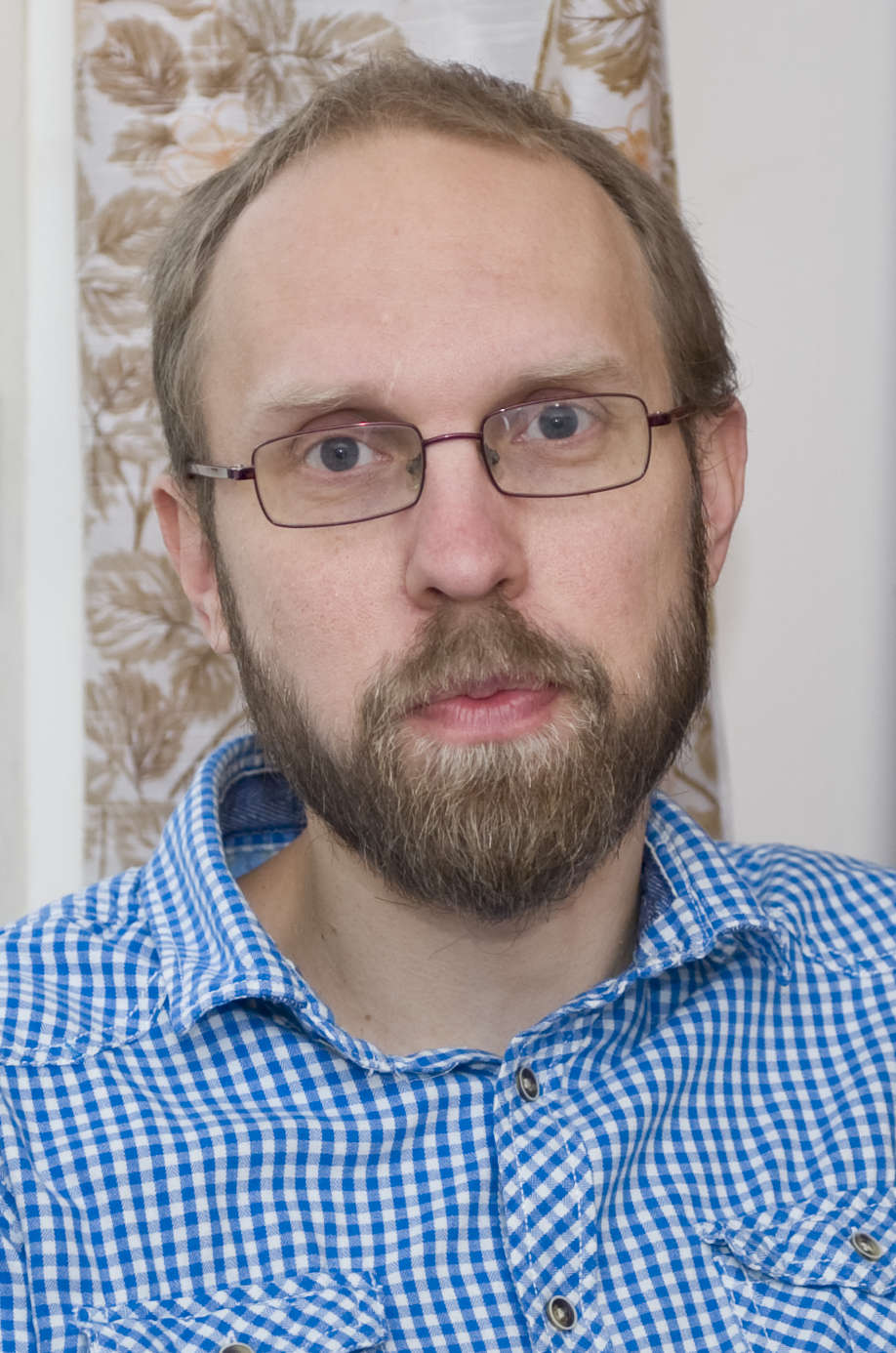
Meelis Friedenthal
Meelis Friedenthal (b. 24. X 1973) is an Estonian writer and theologian. He writes historical prose with magical realist or fantastic components.
Friedenthal studied at Miina Härma Gymnasium in Tartu and in 1992, joined the faculty of theology of the University of Tartu, which he graduated with a BA in 1996. In 2001, he received his master’s degree from the same faculty. In 2008, he defended his PhD thesis that analyzed the manuscript Tractatus moralis de oculo by the 13th century theologian Peter of Limoges. From 2002-2008, he worked as a lecturer and researcher at the faculty of theology of the University of Tartu; from 2008-2011, he was a senior researcher at the University of Tartu Library; from 2014-2015, he worked at the religious tolerance study group at Lichtenberg-Kolleg of the University of Göttingen; from 2015, he was a researcher of the history of ideas of the early modern period at Uppsala University and from 2017, he has been a senior researcher of the intellectual history of the Baltic Sea region at the University of Tartu Library.
Friendenthal published his first science fiction story Läänerindel muutusteta (‘All Quiet on the Western Front’) in the Estonian online science fiction magazine Algernon in 1999. Other publications at Algernon followed and were widely accepted by the local sci-fi community. The story Üht teistsugust algust (‘Of A Different Kind of Beginning’) won the Estonian science fiction award Stalker in 2002 as best original story and was later published in the anthology Stalker 2002: Eesti ulmeauhinna Stalker laureaadid ja nominendid (‘Stalker 2002: The Laureates and Nominees of the Estonian Science Fiction Award Stalker’). Friedenthal has been subsequently recognized with the Stalker award five times.
Friedenthal’s debut novel Kuldne aeg (‘The Golden Era’, 2005) tells the story of an extinct human race brought back to life by robots. The new humans, now suffering from chronic amnesia, need to face the fragmented, incomprehensible and controversial history of mankind before them. A few other Friedenthal’s short stories take place in the universe of Kuldne aeg. The novel was highly recognized by critics and in addition to the Stalker award, it also won III place at the Estonian novel competition.
When Kuldne aeg and the stories before it are pure science fiction, then Friedenthal’s second novel Mesilased (2012, published as ‘The Willow King’ in English in 2017) is a historical one. The novel takes place in the end of 17th century Tartu that is suffering from poor weather, crop failures, famine and political conflict that are all directly or indirectly caused by the so-called Little Ice Age that afflicted Northern Europe in those times. However, in the 17th century, the University of Tartu was a much more fertile environment for scientific enlightenment ideas than the old and conservative universities of Western Europe. The novel was well received by critics and readers alike, it won the European Union Prize for Literature and has been translated into several languages.
Friedenthal’s third novel Inglite keel (‘The Language of Angels’, 2016) takes place in two parallel timelines, one in modern day and the other in 17th century Tartu, and is centered around a magical manuscript and Titivillus, a demon of scribing and typing errors that appears in different times and places. The novel studies in detail the history of printing technology and papermaking in Tartu and abroad.
Friedenthal has also written the play Vaim masinas (‘A Ghost in the Machine’, 2017) that is about Georg Friedrich Parrot (1767-1852), who was a physicist and rector of the University of Tartu.
S. V. (Translated by A. S.)
Selected biography in Estonian
Novels
Kuldne aeg. Tallinn: Tuum, 2005, 190 lk.
Mesilased. Tallinn: Varrak, 2012, 211 lk. [Juurdetrükk: 2015.]
Inglite keel. Tallinn: Varrak, 2016, 207 lk.
Short stories
Võrguajakirjas Algernon ilmunud jutud: http://algernon.ee/meelis_friedenthal



